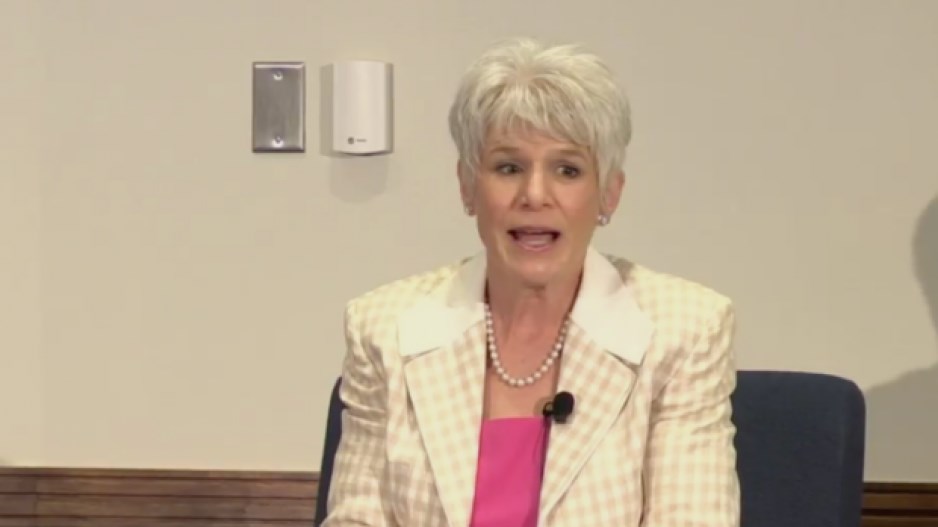Surrey needs to make itself more attractive to business by taking advantage of its cultural diversity and evolving into a world-class city as its population nears 600,000, business and political leaders say.
And, said Surrey-Guildford NDP MLA Garry Begg, the province can help with that as COVID-19 recovery money will likely be invested in building infrastructure.
Begg joined real estate marketer Bob Rennie and Downtown Surrey Business Improvement Association CEO Elizabeth Model in a July 23 conversation moderated by BIV publisher and editor-in-chief Kirk LaPointe.
“You will have a larger population than the city of Vancouver by the end of this decade,” Rennie said
He added that centralization of housing and services would help create a livable city.
Model pointed to work by former mayor Dianne Watts to foster development of the city centre, in knocking on doors of developers as part of the city’s transformation.
It’s the developers’ work that changes the face and the space of the city, she said.
Rennie said the cloud that once hung over the city’s reputation is “pretty well gone.… [Now] Surrey is fresh. It still has room to grow.”
Rennie said large companies already investing in Surrey attract other companies as well. Among the city’s needs are more lawyers and accountants, he added.
“People want to be where other people are.”
Rennie pointed out that a big part of the equation is creating sustainable public transportation and getting people out of their cars.
He added that residential density around commuter train stations needs to be addressed and that TransLink could assist growth by limiting parking around those stations.
Model said transportation options include light-rail buses and cycling lanes.
Moreover, added Rennie, young people aren’t interested in cars. “It’s very inconvenient. They’re going to rely on car-sharing or probably transit.”
And, he said, people want to live near where they work, and they want cities that are safe, livable and provide convenience. But rather than sell land to newcomers for development, he said the city should provide 99-year leases.
What Surrey also needs, Rennie said, is a cultural centre akin to Vancouver’s Queen Elizabeth Theatre, a facility that could foster the city’s wide cultural diversity.
“Take some cultural risk,” he said. “Let the pillars of the community get their names on things and get involved, not isolated.”
He said B.C is going to face pressure as more people come from Hong Kong as Beijing cracks down.
Begg agreed that cultural diversity is important for the city. He noted that the Indo-Canadian and Filipino communities want cultural centres and suggested building a cultural facility all groups could embrace.
As far as what Victoria could provide for post-COVID recovery funds, Begg said government has traditionally relied on building schools, bridges and hospitals.
“I don’t think there’s any surprise that’s where [funds] will always go.” •




